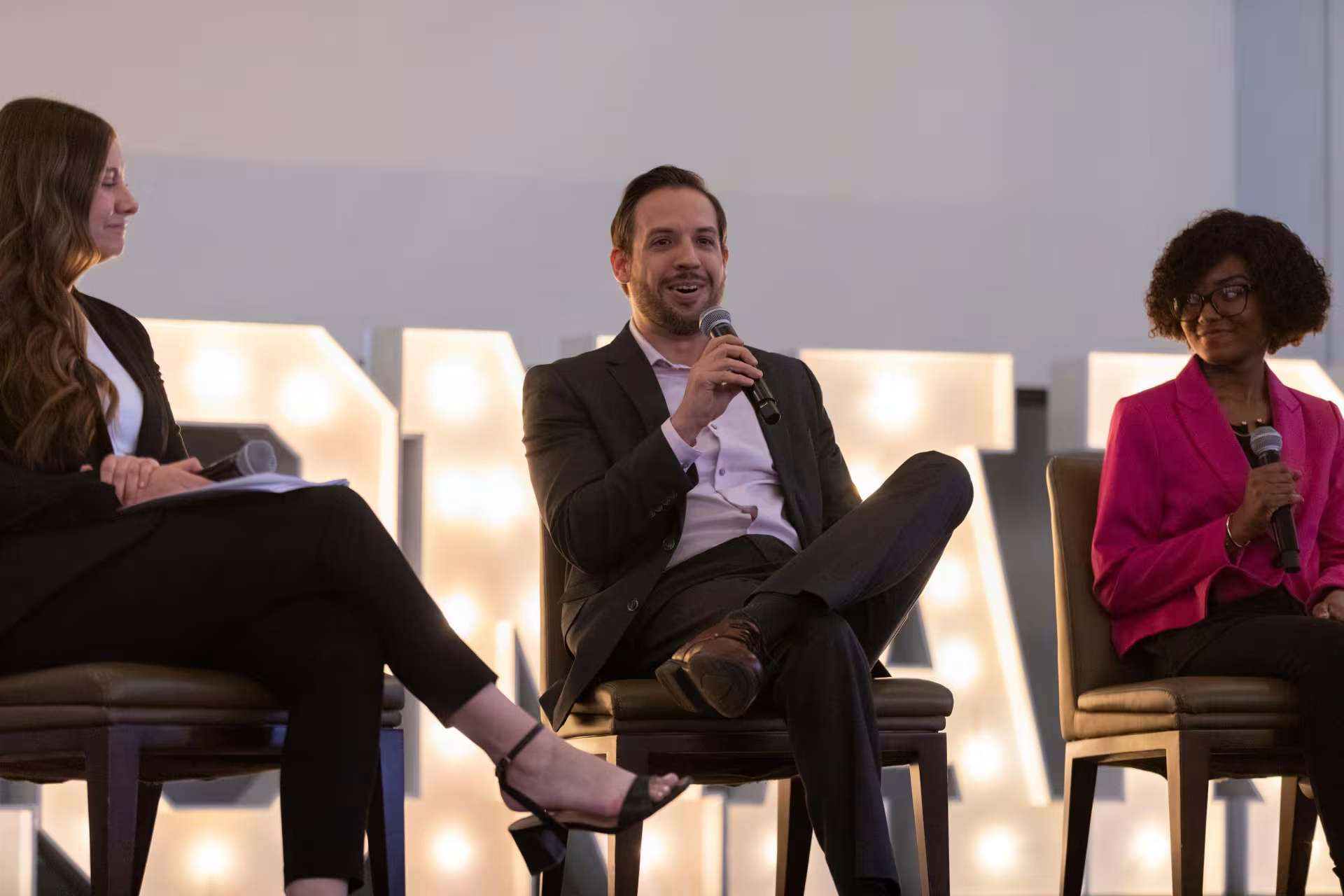Read time 9 minutes
Published on Jun 13, 2023
As soon as you enroll in a Doctor of Business Administration (DBA) in Marketing program, you will start developing the valuable research skills needed to complete your assignments and, most importantly, your dissertation. You can learn how to conduct your own studies and determine whether to conduct quantitative vs. qualitative marketing research. You will also have the opportunity to learn how to interpret and analyze existing studies to promote new ideas in the marketing field.
Earning a doctorate in marketing research requires critical thinking skills as well as the ability to investigate historical and current trends within the field. The more reading and research you do during your DBA in Marketing program, the more confident you can become in applying the various types of research to have the opportunity to make a difference in the marketing field.
In broad terms, marketing research is the process of gathering information related to marketing. This may include studying the market, assessing advertising effectiveness, understanding the draw of a product or service as well as identifying current and potential future customers for that product or service. It is the job of marketing research professionals to analyze and interpret that information to assess the viability of a product or service within a certain target market and gain valuable insights into the spending habits, locations, characteristics and needs of target consumers.
What is the best type of marketing research and what is the difference between quantitative vs. qualitative market research? In this article, we answer those questions and take an in-depth look at qualitative data collection methods.
What Is Qualitative Marketing Research?
Qualitative marketing research is particularly important because it allows the researcher to understand consumers’ beliefs, experiences and points of view. Conducting market research often involves inducing consumers to share the things that influence their behavior and buying habits.
Types of Qualitative Marketing Research
These professionals use a variety of qualitative marketing research methods to gain insight into consumer habits, such as:
Advantages and Disadvantages of Qualitative Marketing Research
Qualitative marketing research has many advantages over quantitative marketing research. When you are conducting research for your DBA in Marketing degree program, employing qualitative market research methods will enable you to interact with consumers in a way that feels natural for them while also being informative for you. Some other major advantages of qualitative marketing research are that it:
The disadvantages of qualitative marketing research mostly concern time, cost and outcome. Qualitative marketing research can take days, weeks or even months to complete — and when it comes to research, time really is money. Furthermore, the outcomes of qualitative marketing research are inherently subjective; two consumers may feel very differently about the same product or service. In other words, there is no standardization in qualitative research, so it may be difficult to use the data to make accurate assumptions or predictions.
Qualitative Data Collection Methods
Now that you understand the essentials of qualitative data, it’s time to take a look at the qualitative data collection methods you may be working with. These are some of the leading data collection methods used by marketing research doctoral candidates for their dissertations:
Most of these qualitative data collection methods allow you to gather primary data. Primary (or “raw”) data is gathered directly from the primary source. For example, if you distribute a questionnaire or interview people directly, you are collecting primary data.
The only secondary data collection method listed here is the last one: records and archival review. With this method, you are reviewing data that was already collected by someone else. For instance, you might review census records or salary data collected by a job posting website.
Developing Qualitative Surveys or Questionnaires
This is one of the most popular options for graduate students conducting research for their dissertations, regardless of whether it is quantitative vs. qualitative market research. Qualitative research demands open-ended questions, whereas quantitative requires closed-ended questions.
But before you can get to work on developing your questions, you must first define your target audience and consider whether there will be any exclusionary criteria. For example, if your dissertation topic concerns ESL (English as a second language) learners, do you want to survey only ESL learners who are over age 40, those who hail from a certain country, or those who speak a specific native language? The first few questions of your survey should be exclusionary in nature to ensure accuracy in your results.
It is important to note that qualitative surveys typically do not use multiple-choice questions, instead preferring closed-ended questions. However, multiple-choice and “fill-in-the-blank” questions are acceptable for the purpose of acquiring exclusionary data. In other words, if you are conducting a digital survey, such questions are useful for screening and excluding potential participants whose responses do not meet your eligibility criteria. (Be sure to thank them for their time, whether they qualify or not!)
Next, it’s time to develop the questions you’ll use to gather your qualitative data. Your questions will be shaped by the focus of your research, and they should all be open-ended. Take care to avoid any unconscious biases in your questions. Consider the difference between these two prompts:
After developing your survey, you’ll need to distribute it digitally or via mail.
Conducting Interviews to Collect Qualitative Data
Another qualitative data collection method is one-on-one interviews. Compared to surveys, interviews offer a more personal way to collect data, which is why many qualitative researchers prefer this approach. However, because interviews tend to be more time-intensive than surveys, they are not the most efficient of all qualitative data collection methods.
A qualitative, data-driven interview can be unstructured and informal, in contrast to the necessary structure and formality of a quantitative interview. The qualitative researcher is free to deviate from the interview script, asking follow-up questions as they occur and pursuing any topics of interest that may arise during the conversation.
Holding a Focus Group for Your Dissertation Research
Focus groups are a classic method of data collection for qualitative research. Note that in a focus group, participants’ answers may be influenced by the responses of other participants, or even by their mere presence.
Conducting a focus group is quite simple. Limit the participants in each group to no more than six to ten. Lay some ground rules ahead of time, such as no interrupting or judgmental comments about other participants. You will serve as the discussion moderator. Write down some questions in advance, although spontaneous follow-up questions may occur to you during the session. Remember to record your focus group sessions for later analysis.
Collecting Qualitative Data via Observations
Observations are a useful method of collecting qualitative data, particularly when it’s necessary to observe participants in their natural environment. For example, you might go to an ESL classroom to observe the behaviors of the students.
Some observational studies are overt, which means the study participants are fully aware that you are there to observe them. Others are covert, which means you will need to blend in with your surroundings and subtly make observations that go unnoticed by the study participants. For instance, you might pose as a fellow ESL student or as an ESL teacher-in-training who assists with the lesson plan.
Reviewing Records or Archives for Your Dissertation Research
A records review is a form of secondary research, meaning that you are sifting through data already collected by someone else. However, a records or archival review isn’t necessarily limited to documents. You may also need to comb through archives of images, videos or audio recordings. Many archival collections — but certainly not all — have now been digitized.
Marketing researchers rely on quantitative marketing research to obtain reliable statistical data. However, there are some drawbacks to this type of research. Perhaps most critically, quantitative marketing research does not explain the reasons behind the numbers it produces. Data analysts help fill this gap by interpreting the data to identify patterns and learn valuable insights. Quantitative research may also lack reliability, depending on sample size and how the information was collected.
What Is the Best Type of Marketing Research? Choosing Between Quantitative vs. Qualitative Market Research
What is the best type of marketing research? The answer is, “It depends.” The decision to use qualitative vs. quantitative marketing research depends on the research question to be addressed.
For example, if your research is focused on describing a user experience, then qualitative research is likely more appropriate. On the other hand, if your research aims to provide specific data about a population (or to compare populations), then quantitative research may be best.
Qualitative marketing research helps businesses understand consumers and their reactions, and it often proves valuable in the following applications:
On the other hand, the researcher who is looking for more objective results will lean heavily on quantitative marketing research. These professionals will choose quantitative research over qualitative marketing research because it is:
How Much Research Do You Do in a DBA in Marketing Degree Program?
Marketing is a popular field, and the BLS estimates job growth for advertising, promotions, and marketing managers to increase by about 10% from 2021 to 2031, as fast as average, accounting for an estimated increase of 33,700 jobs in the field.(See disclaimer 1)
Earning your DBA in Marketing can help you build the necessary research skills through applied projects and a final dissertation. Your DBA in Marketing program will likely include at least one research methods class. Other courses will require you to analyze the strengths and weaknesses of different research approaches while also learning how to skillfully apply each one. By the time you graduate, you will have been taught valuable experience in conducting both quantitative and qualitative research to have the opportunity to contribute your own discoveries to the field of marketing.
If you are ready to dive into the world of quantitative and qualitative marketing research and potentially develop your research skills, earn your DBA in Marketing at Grand Canyon University. Fill out the form on this page to begin your journey in marketing today.
(See disclaimer 1)The earnings referenced were reported by the U.S. Bureau of Labor Statistics (“BLS”), Advertising, Promotions, and Marketing Managers as of April 2023. Due to COVID-19, data from 2020 may be atypical compared to prior years. The pandemic may also impact the predicted future workforce outcomes indicated by the BLS. BLS calculates the median using salaries of workers from across the country with varying levels of education and experience and does not reflect the earnings of GCU graduates as Marketing Managers. It does not reflect earnings of workers in one city or region of the country. It also does not reflect a typical entry-level salary. Median income is the statistical midpoint for the range of salaries in a specific occupation. It represents what you would earn if you were paid more money than half the workers in an occupation, and less than half the workers in an occupation. It may give you a basis to estimate what you might earn at some point if you enter this career. You may also wish to compare median salaries if you are considering more than one career path. Grand Canyon University can make no guarantees on individual graduates’ salaries as the employer the graduate chooses to apply to, and accept employment from, determines salary not only based on education, but also individual characteristics and skills and fit to that organization (among other categories) against a pool of candidates.
Approved by the dean of the College of Doctoral Studies on June 1, 2023.





